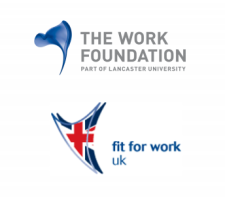October 22, 2014
Companies continue to neglect the strong business case for health and wellbeing
 The Government must comprehensively reform its strategy if it’s to tackle the barriers that remain for many businesses in implementing health and wellbeing programmes. This is the message from the Health at Work Policy Unit’s first paper which was launched yesterday (21 October 2014) by Lancaster University’s Work Foundation at an event featuring Professor Dame Carol Black and Professor Sir Cary Cooper. The Way Forward: Policy Options for Improving Workforce Health in the UK examines why a large number of businesses have continued to neglect health and wellbeing given the strong business case and identifies the barriers facing employers at three main stages: planning, implementation, and evaluation of these policies. However, according to the lead author, Dr Zofia Bajorek, these barriers can be overcome by developing a health and wellbeing strategy which illustrates the potential for competitive advantage, investing in and executing evidence based outcomes which must then be measured and reported. More →
The Government must comprehensively reform its strategy if it’s to tackle the barriers that remain for many businesses in implementing health and wellbeing programmes. This is the message from the Health at Work Policy Unit’s first paper which was launched yesterday (21 October 2014) by Lancaster University’s Work Foundation at an event featuring Professor Dame Carol Black and Professor Sir Cary Cooper. The Way Forward: Policy Options for Improving Workforce Health in the UK examines why a large number of businesses have continued to neglect health and wellbeing given the strong business case and identifies the barriers facing employers at three main stages: planning, implementation, and evaluation of these policies. However, according to the lead author, Dr Zofia Bajorek, these barriers can be overcome by developing a health and wellbeing strategy which illustrates the potential for competitive advantage, investing in and executing evidence based outcomes which must then be measured and reported. More →













 Amongst all the talk about Generation Y and its impact on the world of work, it can be easy to miss the fact that the modern workplace is not defined by one particular generation, but a number of them. The multi-generational workplace has significant implications for the way we design and manage offices. While we must avoid the more obvious stereotypes about the needs of different age groups, we must still offer spaces that can meet a wide range of cultural, physical and technological needs if we are to create productive workplaces.The latest organisation to bang the drum for the multi-generational workplace is the Chartered Institute of Personnel and Development. It has published new research together with the Scottish Centre for Healthy Working Lives into the experiences and attitudes of SMEs towards age diversity at work.
Amongst all the talk about Generation Y and its impact on the world of work, it can be easy to miss the fact that the modern workplace is not defined by one particular generation, but a number of them. The multi-generational workplace has significant implications for the way we design and manage offices. While we must avoid the more obvious stereotypes about the needs of different age groups, we must still offer spaces that can meet a wide range of cultural, physical and technological needs if we are to create productive workplaces.The latest organisation to bang the drum for the multi-generational workplace is the Chartered Institute of Personnel and Development. It has published new research together with the Scottish Centre for Healthy Working Lives into the experiences and attitudes of SMEs towards age diversity at work.









September 25, 2014
Why a more flexible approach to where and when we work is long overdue
by Sara Bean • Comment, Facilities management, Flexible working, News